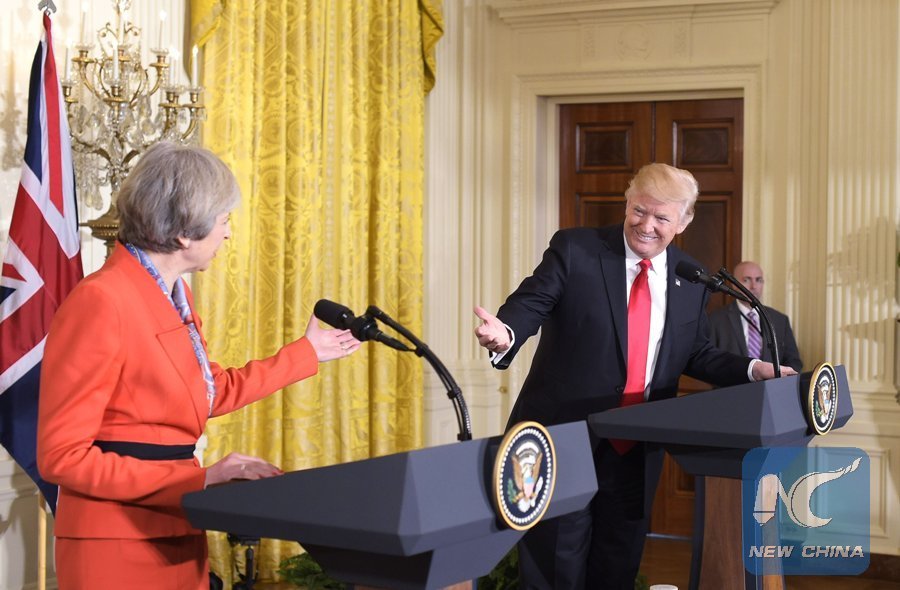
Britain's Prime Minister Teresa May gestures at a joint press conference with US President Donald Trump in the East Room of the White House on January 27, 2017 in Washington, D.C. (Xinhua/AFP)
WASHINGTON, April 26 (Xinhua) -- U.S. Department of State on Thursday confirmed on Twitter that U.S. President Donald Trump will visit Britain on July 13.
The State Department retweeted the post of British top diplomat Boris Johnson that announced the visit.
"Looking forward to seeing out closest ally and friend on the GREATest visit ever," said Johnson.
The White House spokesperson Sarah Sanders was quoted by the U.S. media as saying earlier on Thursday that the visit is "pretty exciting news."
The visit was categorized as a "working visit," but the British media reported that besides meeting with Prime Minister Theresa May, Trump could also meet with the queen and royal family members.
The visit would start after Trump attended the NATO summit slated for July 11-12 in Brussels.
The two sides tried to patch up with their ties strained over a group of issues by jointly attacking Syria earlier this month.
Trump made a sudden announcement on Jan. 11 that he has canceled his trip to Britain due to disappointment over the new location of the U.S. embassy in London.
The trans-Atlantic alliance between the United States and Britain has been shaky ever since Trump assumed the presidency last January. His proposal of a strict ban on Muslim immigration has sparked wide controversy in the island nation. Matters got even worse when Trump retweeted video posts of a British ultra-rightist group targeting Muslim immigrants in November.
Under domestic pressure, May said that Trump's remarks were wrong, triggering the latter's retort demanding her not focus on him, but on anti-terrorism efforts in her own nation.
Trump's statement further irritated London, as many people and government officials asked May to withdraw her invitation to Trump to pay a state visit.
The two nations have also seen huge differences on multiple issues like Trump's retreat from the Paris climate accord, his decision regarding Jerusalem at the end of 2017 and his refusal to certify Iran's compliance with the historic Iran nuclear deal in October.

